Over the last 40 years, Robben Ford has established himself in the somewhat gray area between gutbucket blues, exploratory jazz, and soulful R&B. His latest album, Into the Sun, is a guest-filled affair with cameos by Warren Haynes, Sonny Landreth, and pop/rock chanteuse ZZ Ward. Ford recently took over the Premier Guitar Facebook page to answer questions for nearly an hour. Here are some gems about his favorite gear, working with Miles Davis, and how he keeps things fresh.
1. Ford’s earliest influences aren’t exactly surprising.
“My first guitar hero was Mike Bloomfield. In the jazz world, I’d have to say Jim Hall—and B.B. King is definitely the King! Jimi Hendrix is a unique stylist of the electric guitar, and is a huge influence on my rhythm playing.”
2. Miles was always interesting.
“It was certainly thrilling to work with Miles Davis and it was always interesting to be around the guy. We had a very healthy relationship. It was something I never thought would happen. It’s really a wonderful experience to play with a musical hero. I learned a lot from him even before playing with him, including the importance of space, melody, and sound. I also learned an increased confidence in myself as a musician because he was so complimentary and good to me.”
3. Ford has no plans to ditch his Dumble.
“If I were stuck on a desert island, I would have to have my original Dumble Overdrive Special. I definitely would need a reverb, but not sure which it would be. For guitar, my ’63 ES-355 would do just fine.”
4. To warm up his fingers, Ford sticks to the basics.
“I practice scales to warm up. Beyond that, I don’t really have a practice regiment. I make sure to just play the instrument, and that seems to work for me.”
5. One overdrive pedal has captured Ford’s ear.
“The Hermida Audio Zendrive immediately appealed to me. The Zendrive has found a way to reduce the compression I hear in a lot of other pedals, creating a more natural sound. I use the Zendrive for overdrive, a TC Electronic Hall of Fame reverb pedal, the Strymon TimeLine delay, and the Vertex Boost.”
6. Ford thinks “modern” jazz can lose sight of its roots.
“Jazz is the music of improvisation. It’s a very sophisticated art form and should be approached seriously. I find that very few jazz players today really keep in touch with the tradition, going all the way back to Louis Armstrong. Modern jazz tends to sound intellectual, and that’s unfortunate.”
6. While playing with the Yellowjackets, Ford’s gear was in flux.
“The years I spent in the Yellowjackets were a strange period for me. I used a lot of different guitars and amps and was never really comfortable. Yamaha was giving everyone free gear, and it was a lot of trial and error. I finally found my sound with the Dumble Overdrive and the Fender Robben Ford model.”
7. Studio musicians need to add their mojo.
“When I would go record an album, I would use basic rhythm charts with an occasional bass line. For this album, I avoided putting anything on paper because I wanted the musicians to bring their talents to the process without me dictating everything.”
8. If you only have an hour a day to practice, what should you focus on?
“Learn all the jazz chords and learn to play songs. Chords can really open up the whole picture, and playing songs will help you learn ways to use those chords effectively in your writing.”
9. Sometimes Ford tricks himself into being creative.
“One of the ways I will break out of a jam is to make a hard left turn from where the song was originally going. If it’s a mellow tune, I take an aggressive left turn to something harder. ‘Don’t Worry About Me’ from Soul on Ten is a great example of this.”
10. On tour, a Fender amp will do in a pinch.
“When I can’t bring along my Dumble, I don’t really have a favorite amp exactly, because amplifiers can vary in what kind of condition they’re in. Even if I prefer a Super Reverb, whatever Twin shows up might just be a better-sounding amp. I use the Dumble whenever possible and usually take it overseas. I really make an effort to take my own gear wherever I go these days.”








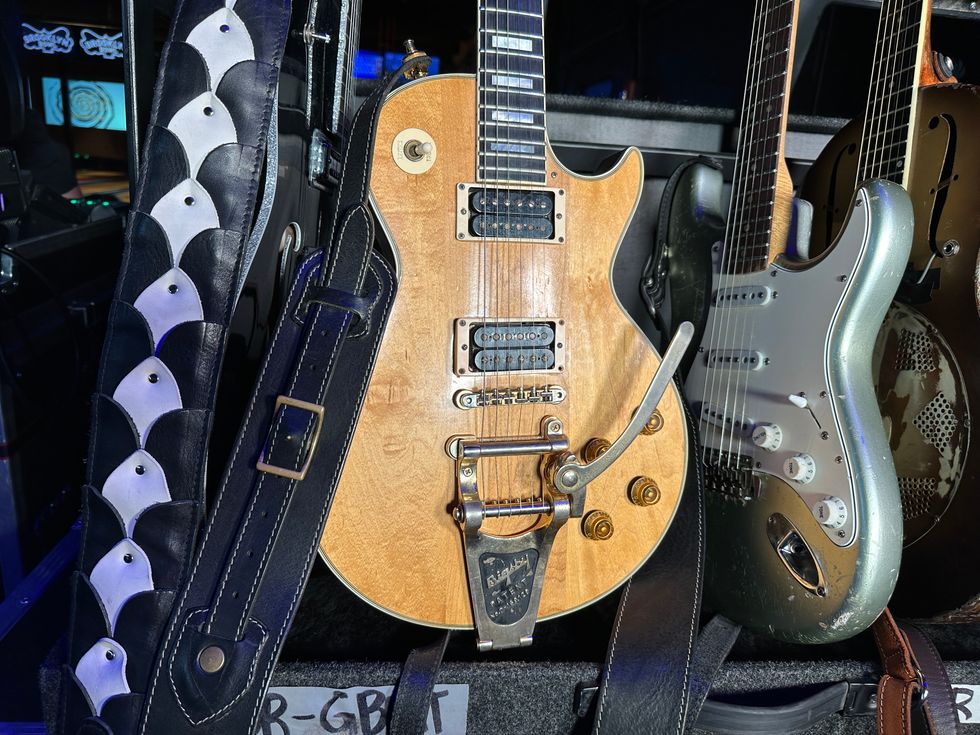
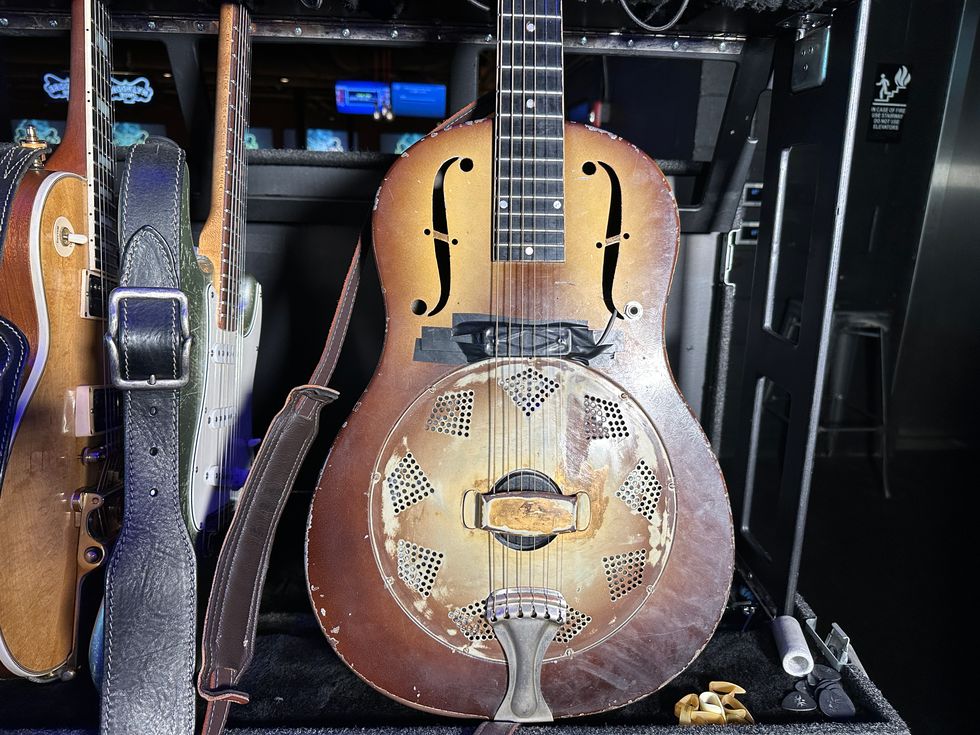
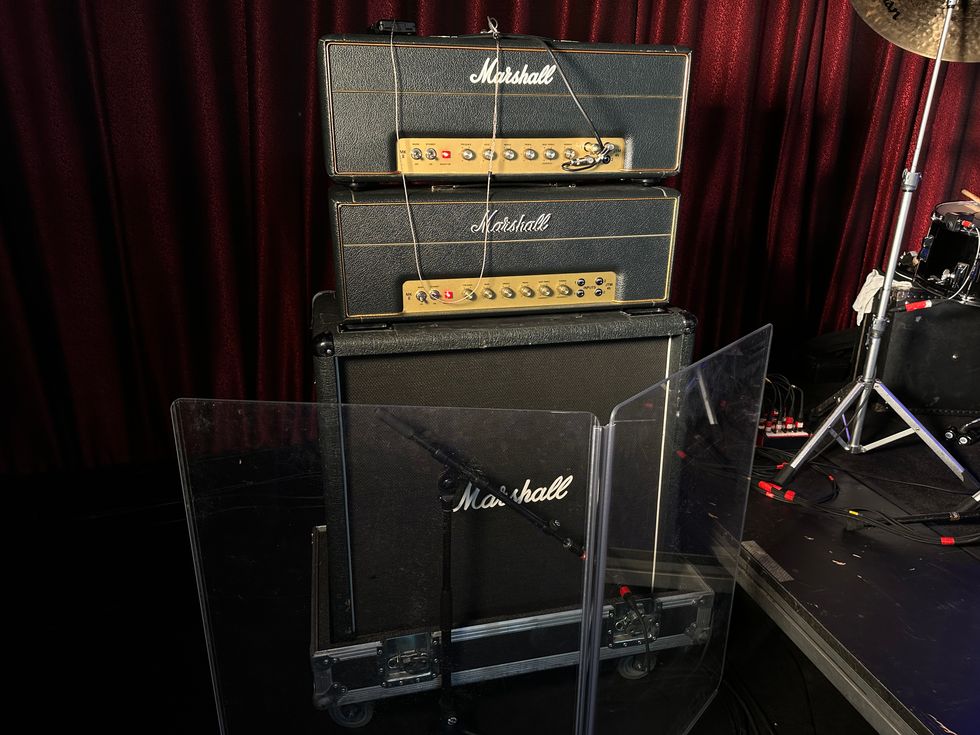
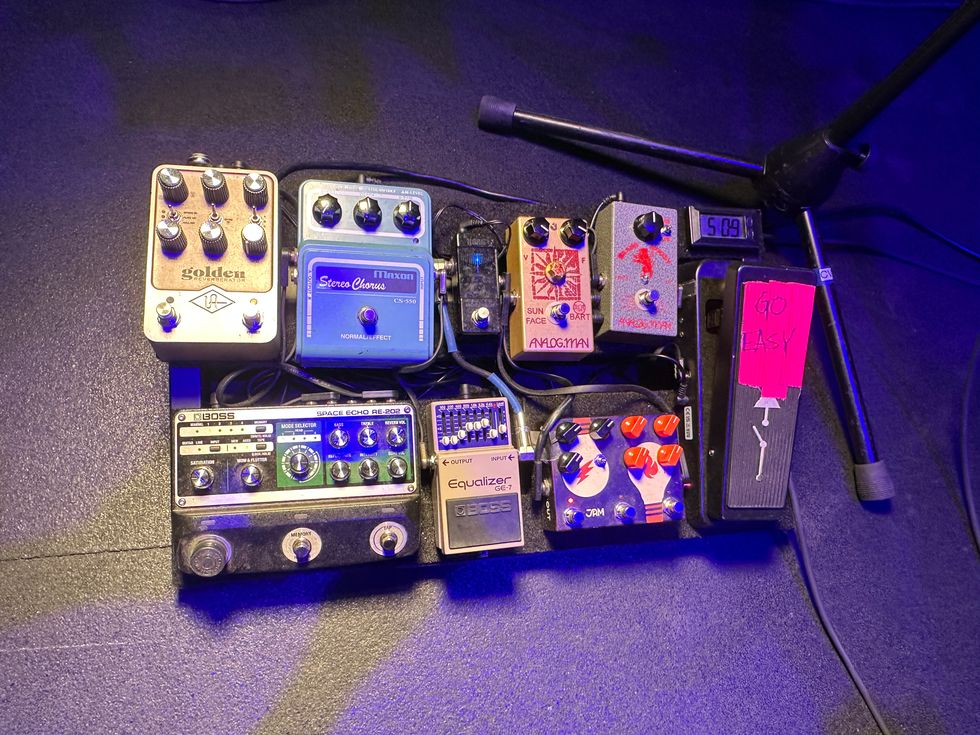
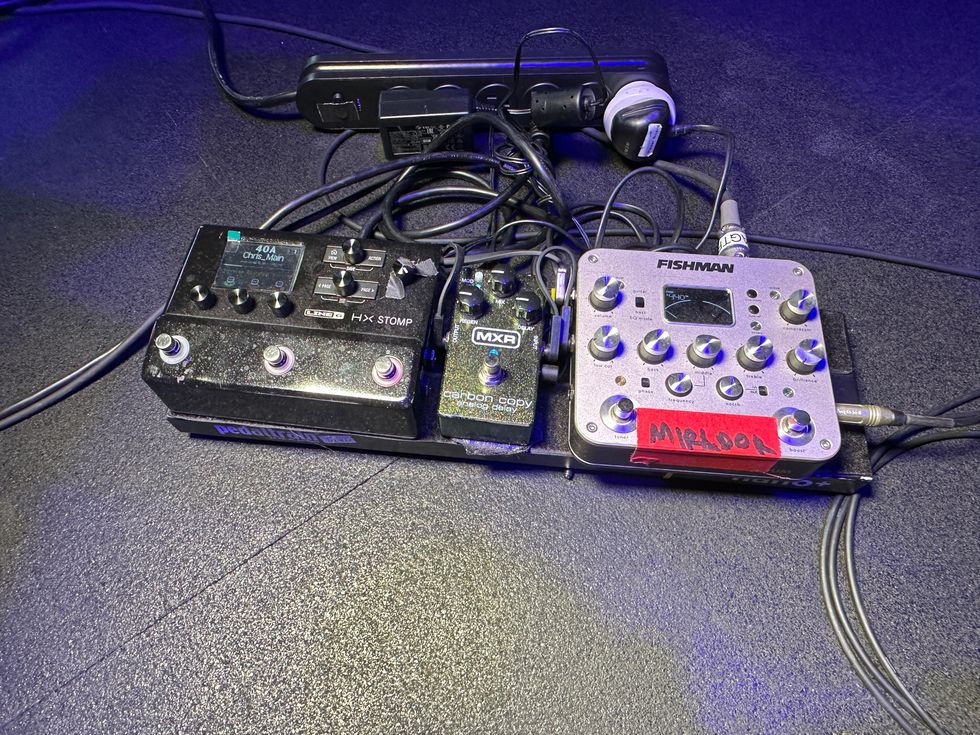
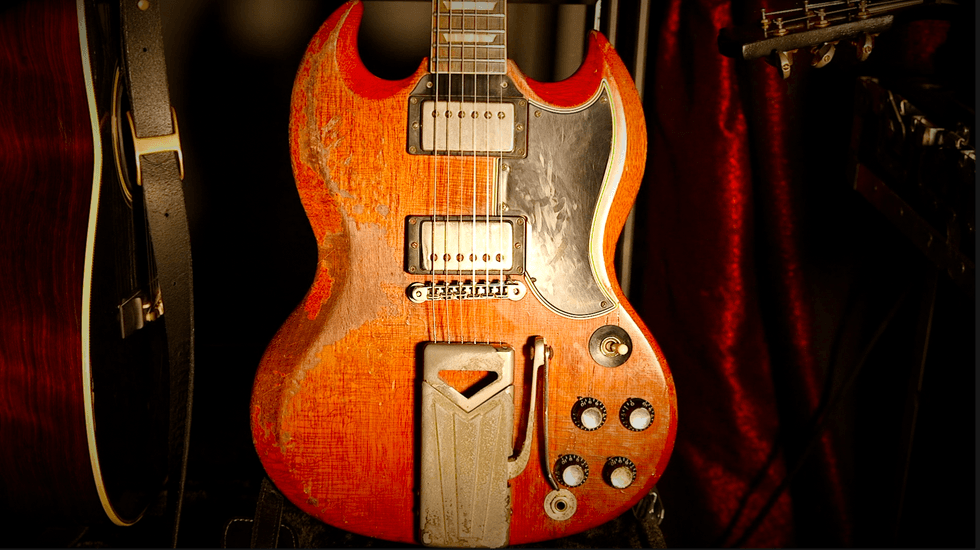
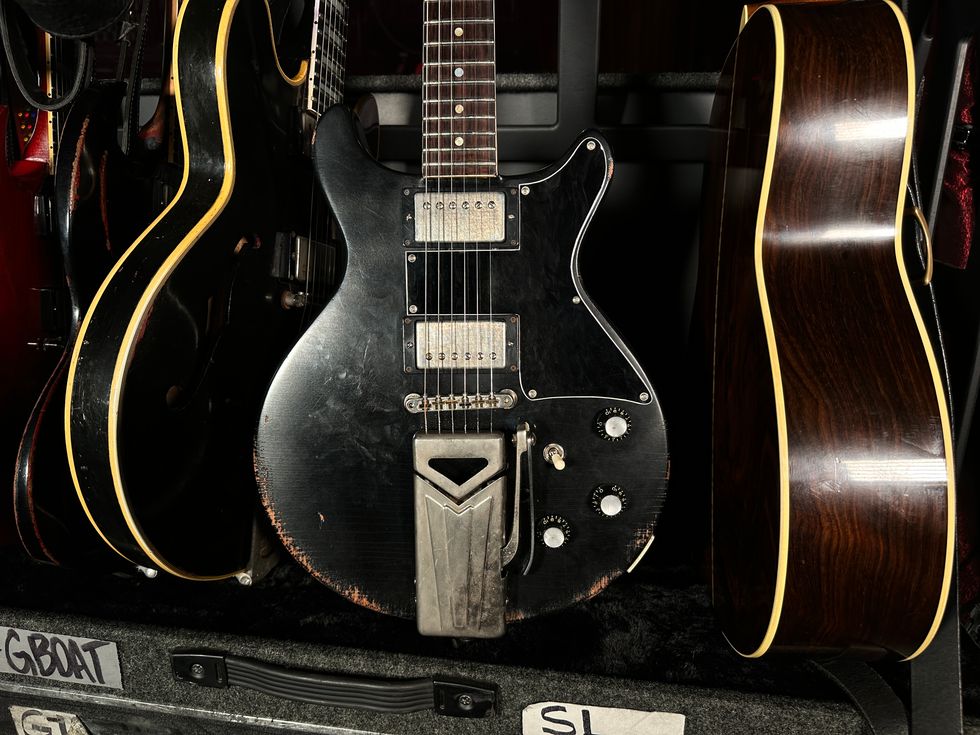
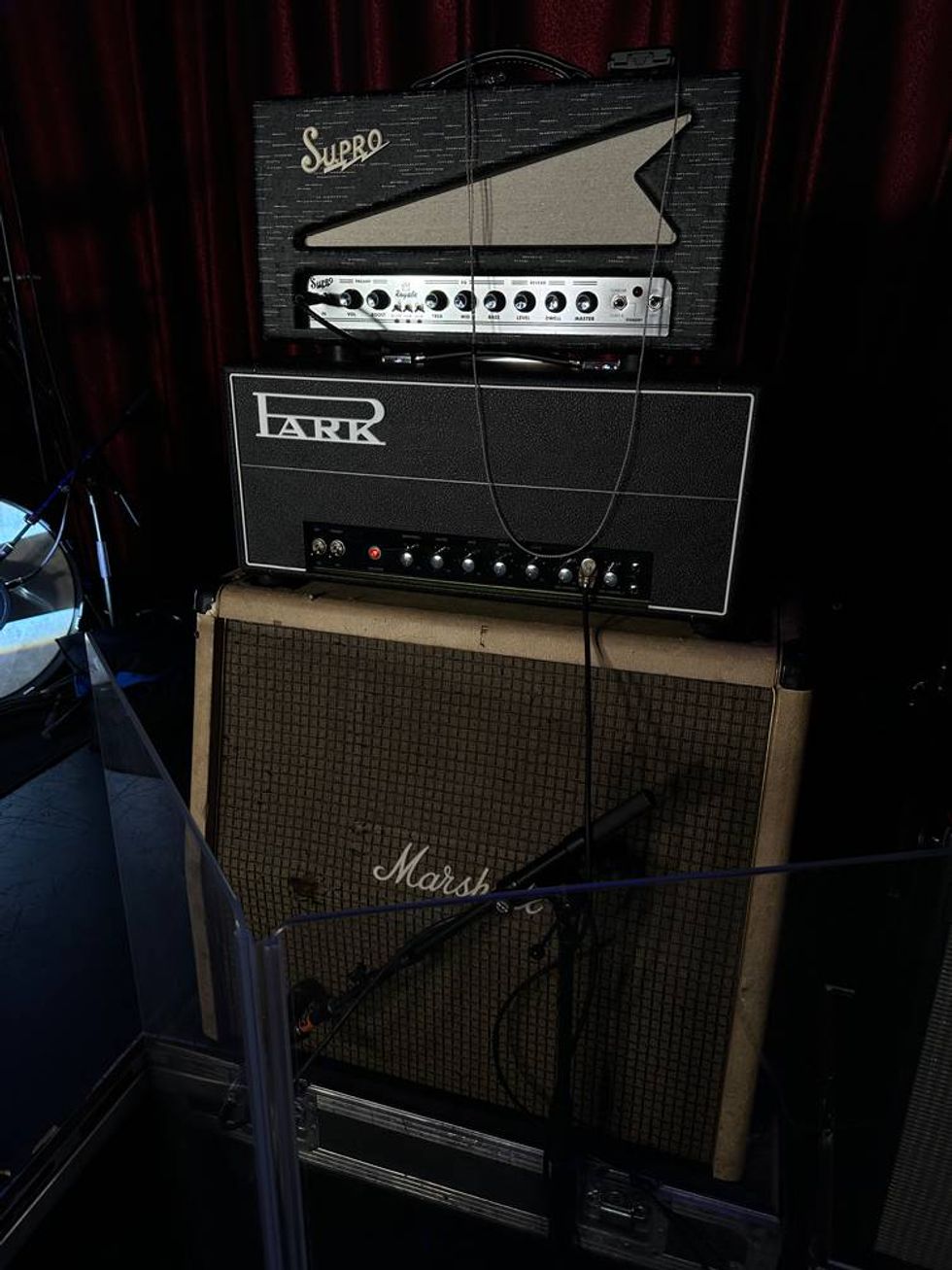
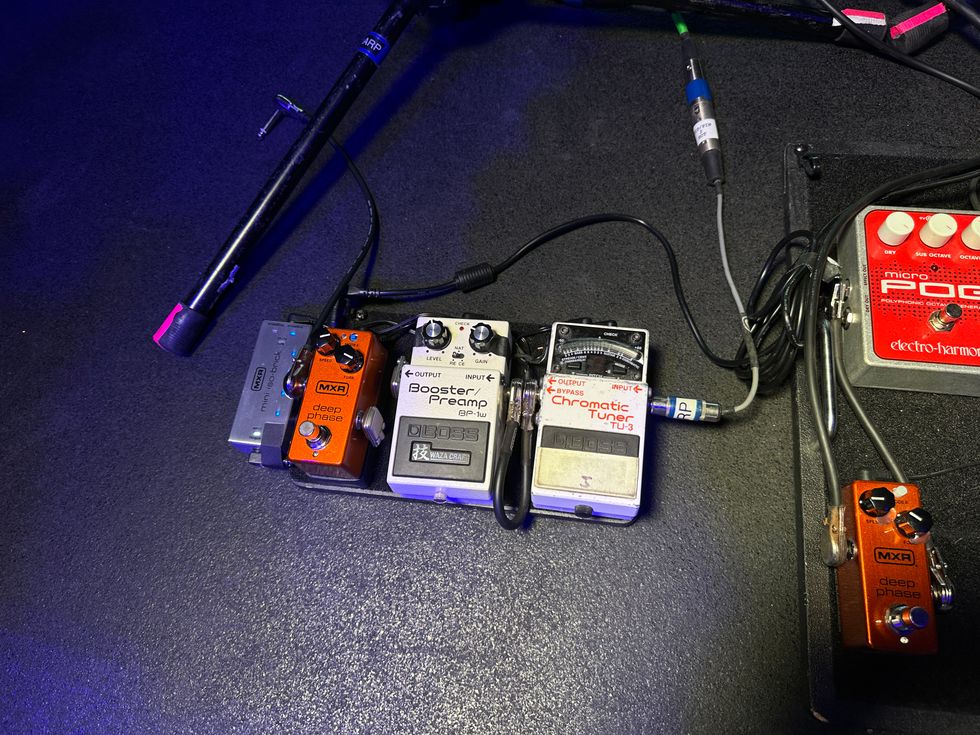
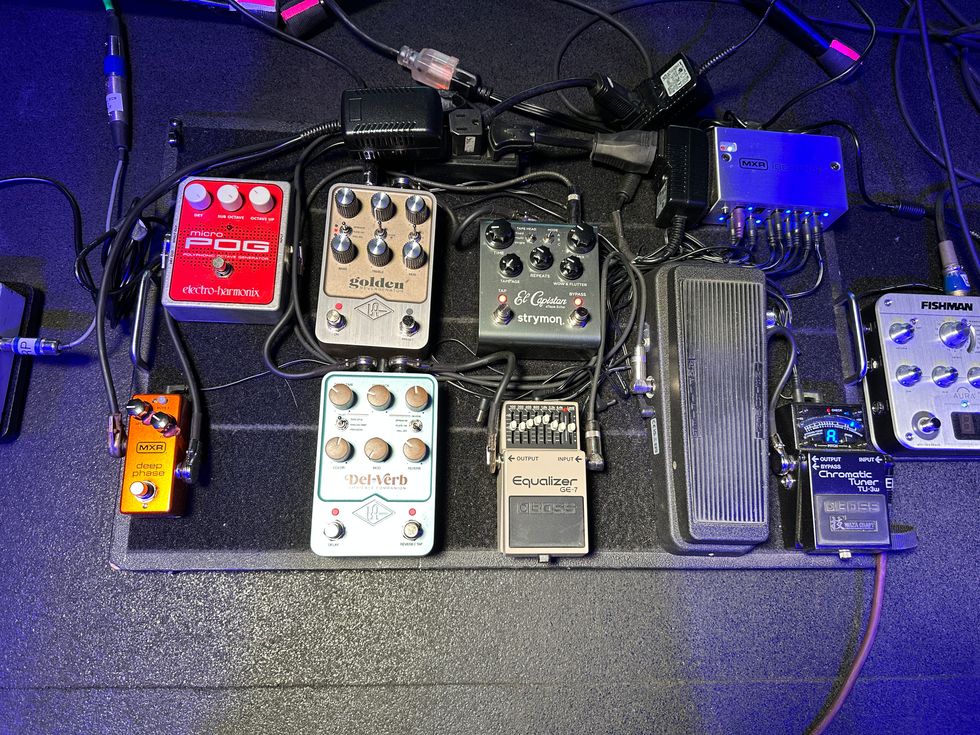
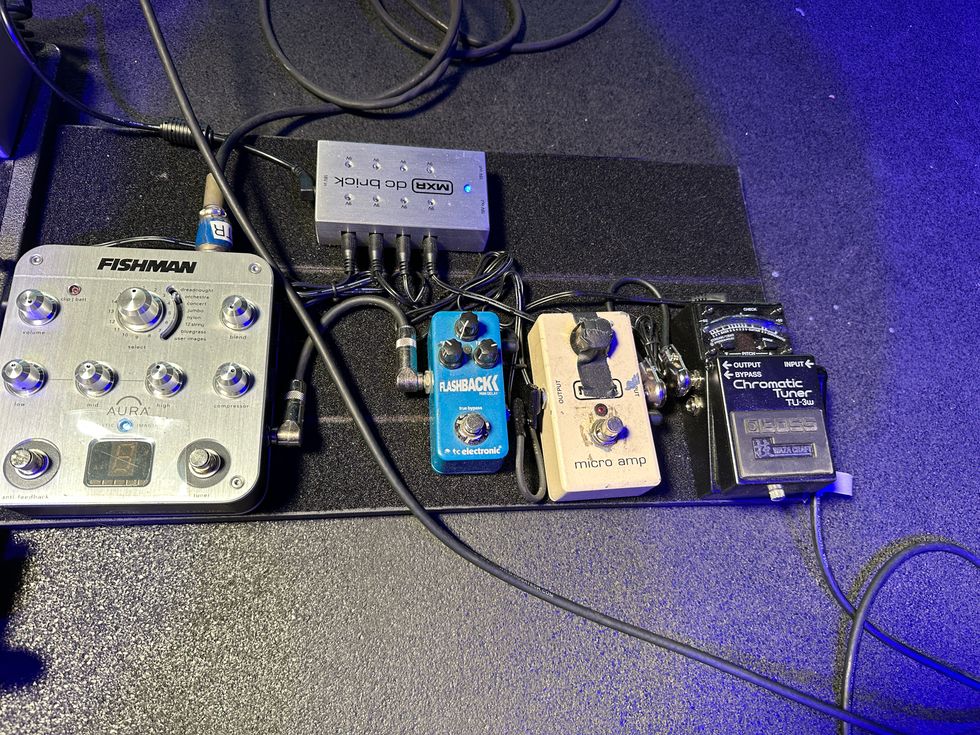

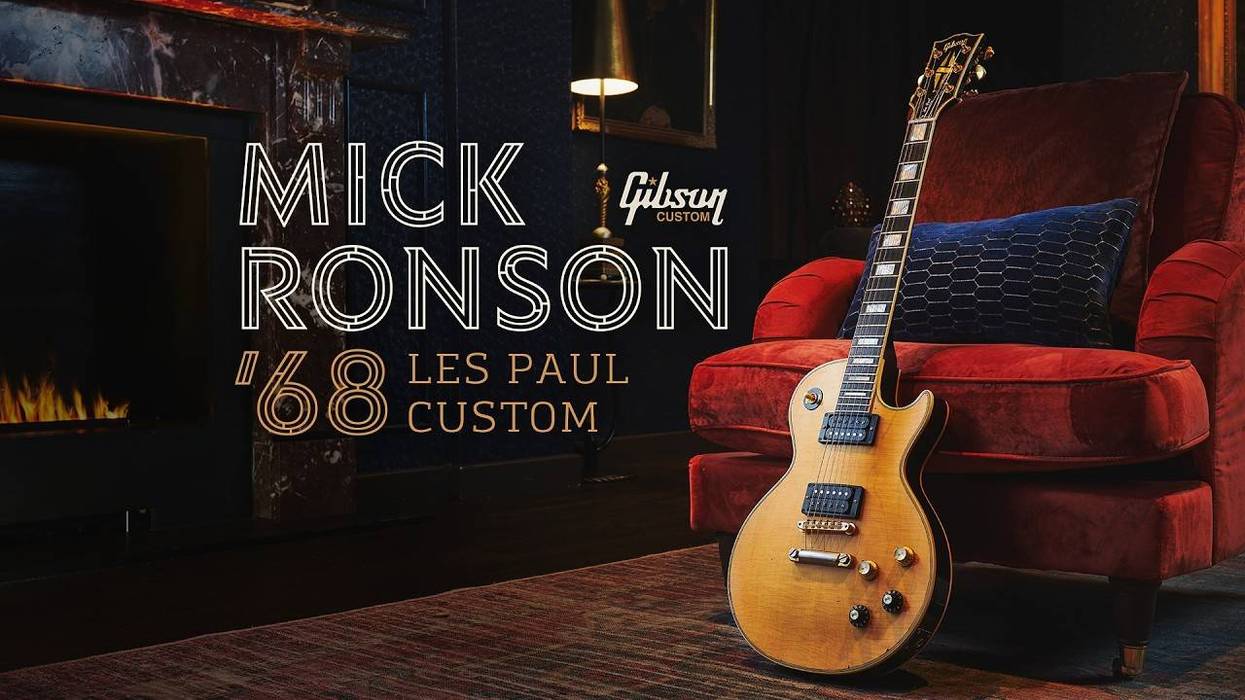
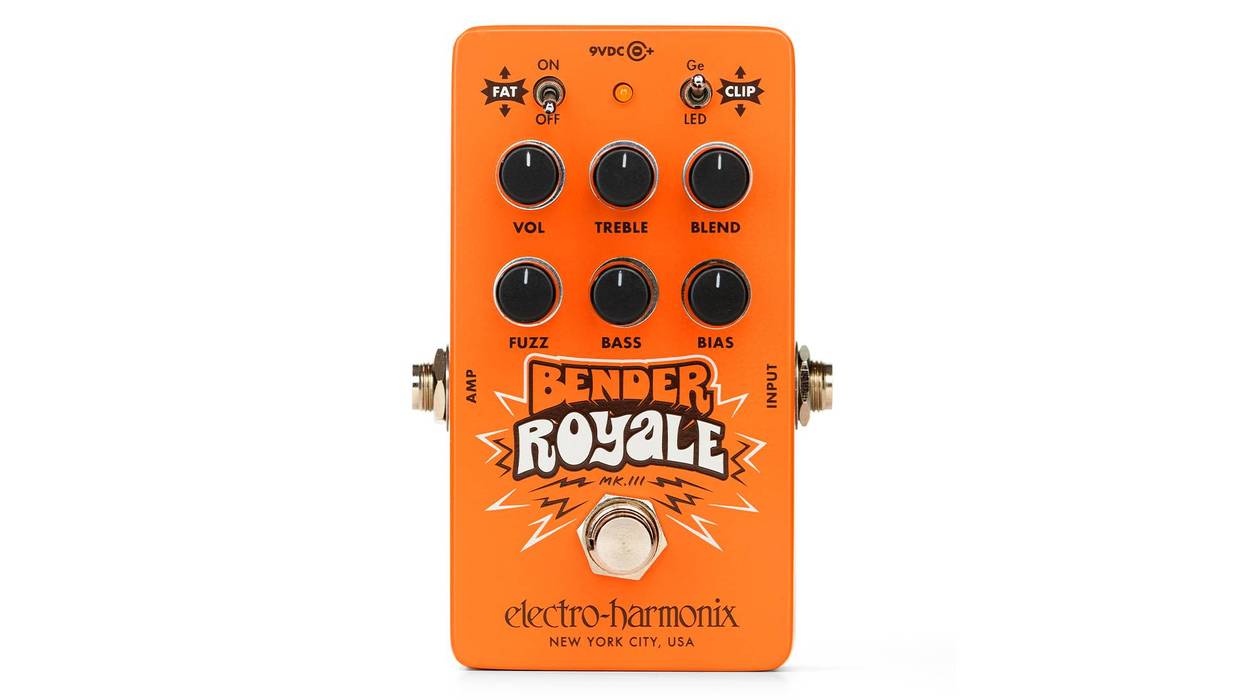
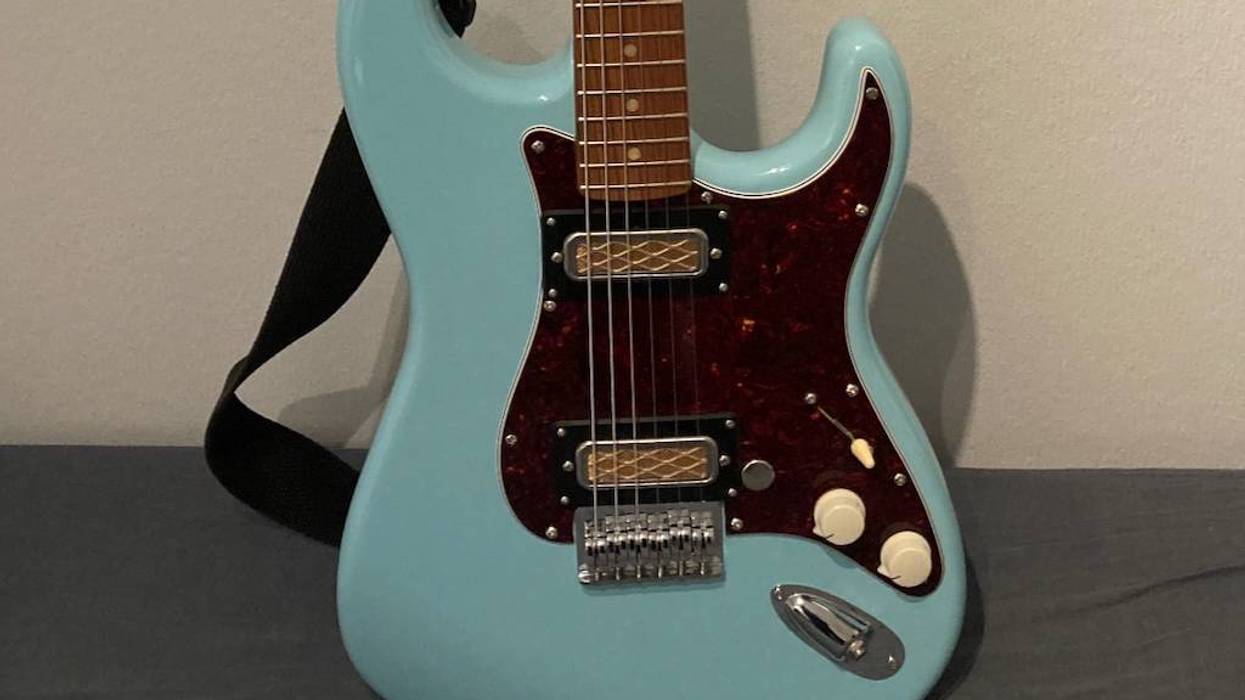
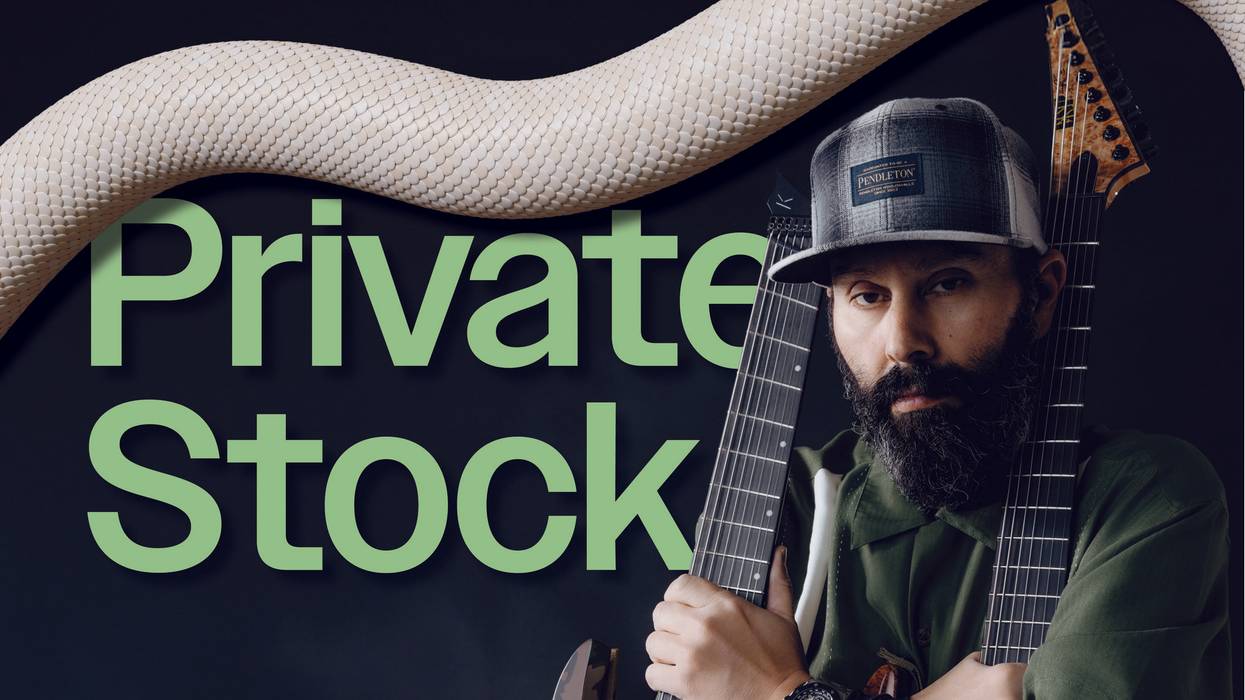






![Rig Rundown: Russian Circles’ Mike Sullivan [2025]](https://www.premierguitar.com/media-library/youtube.jpg?id=62303631&width=1245&height=700&quality=70&coordinates=0%2C0%2C0%2C0)















